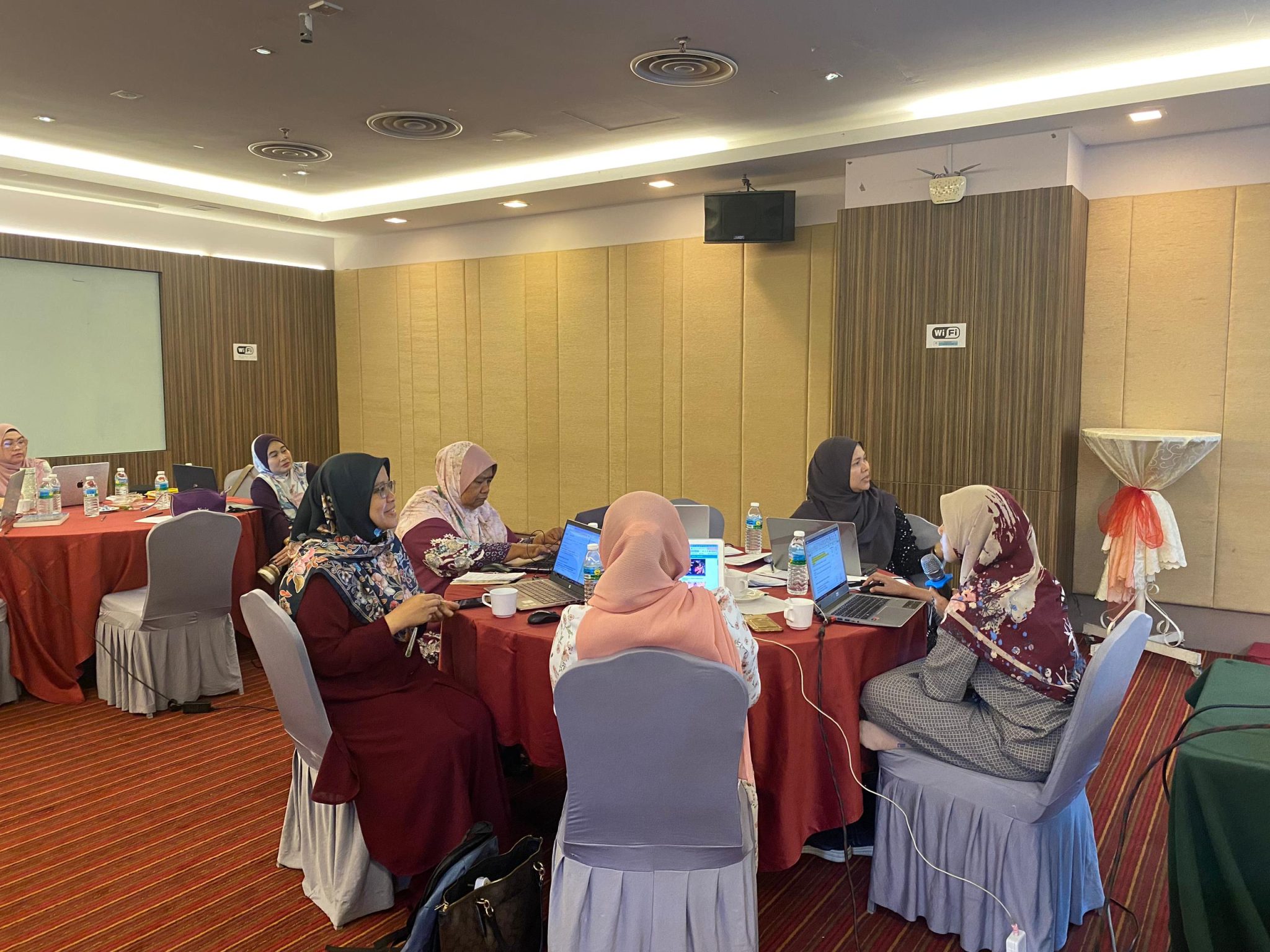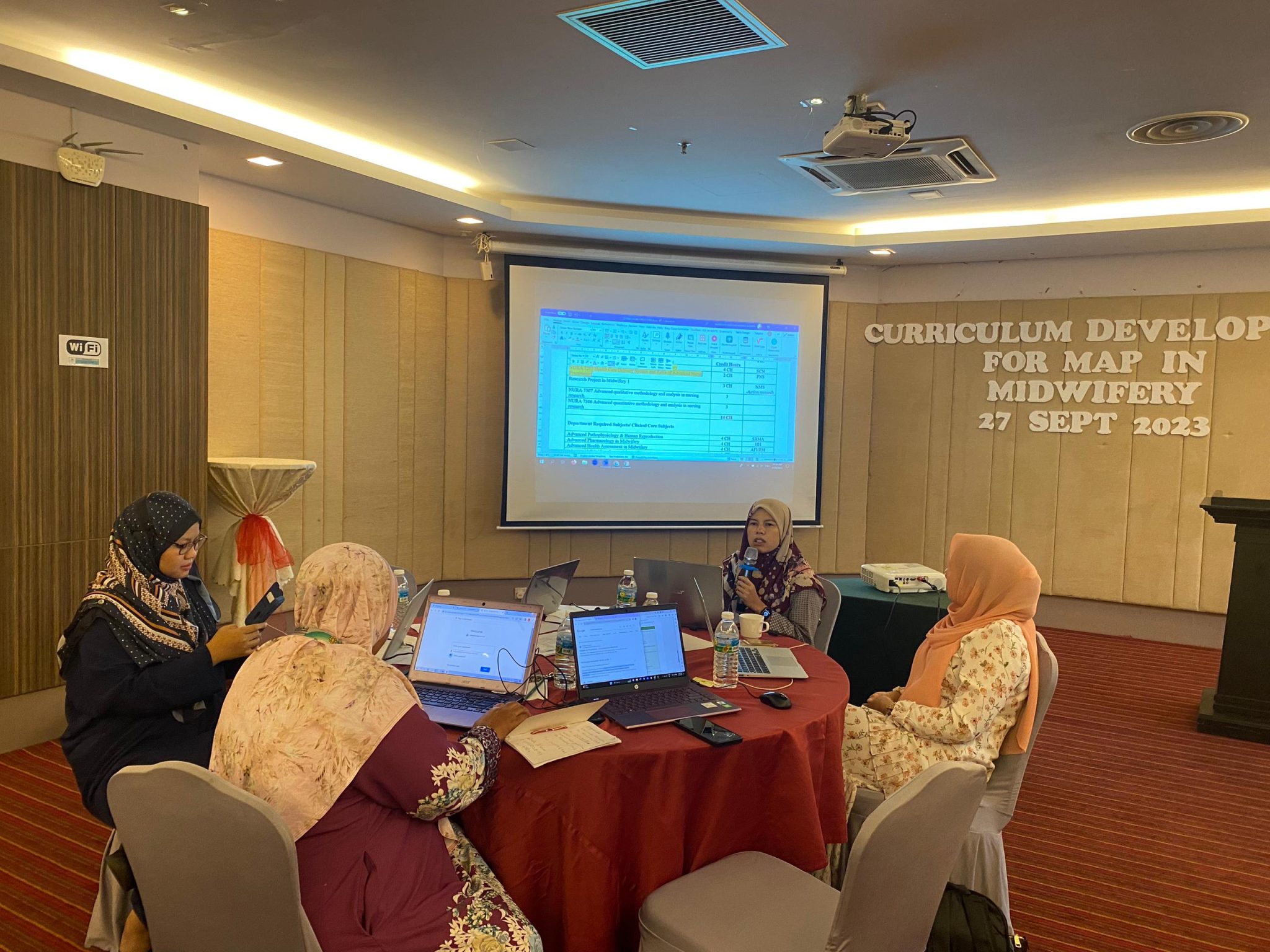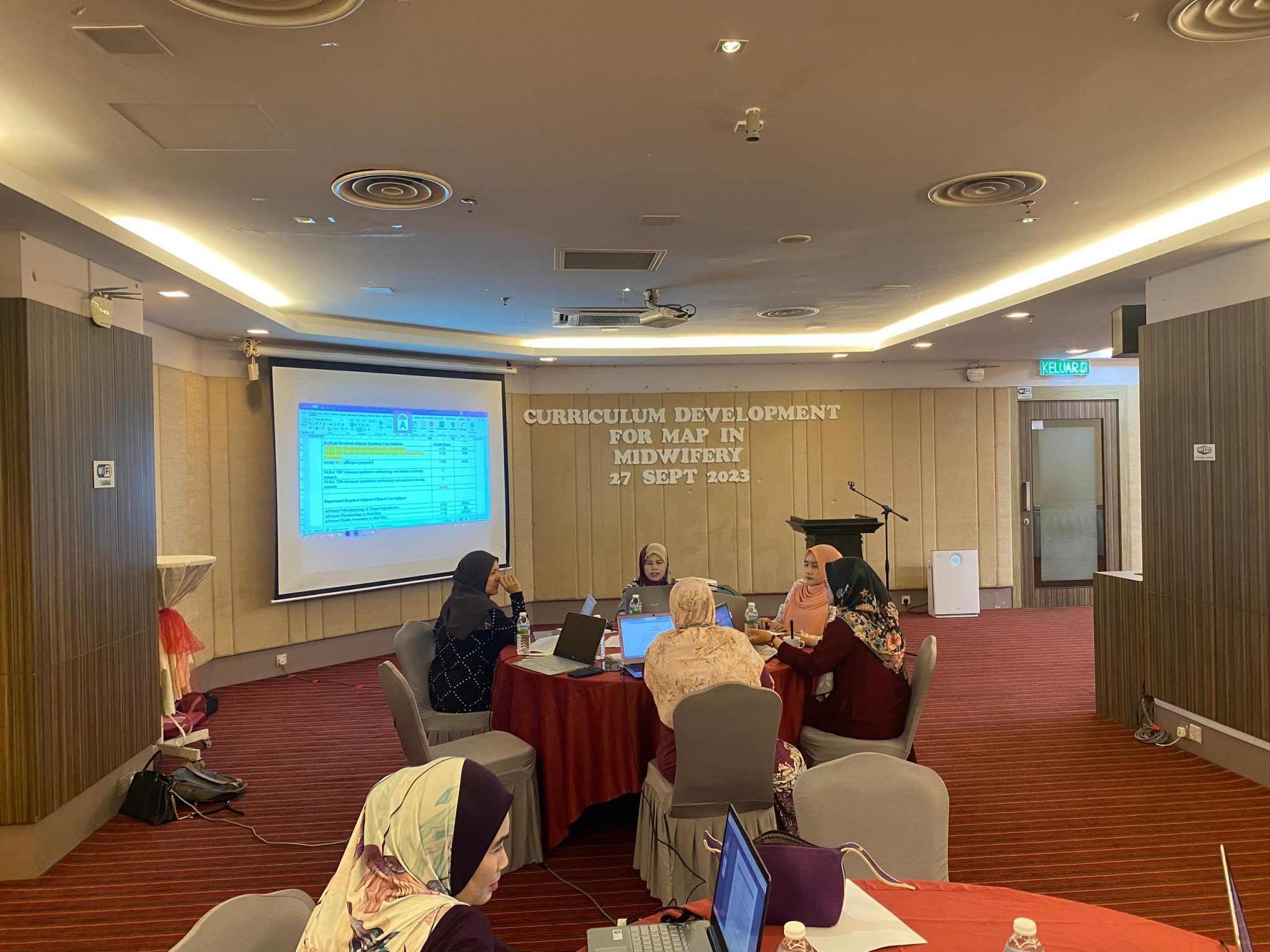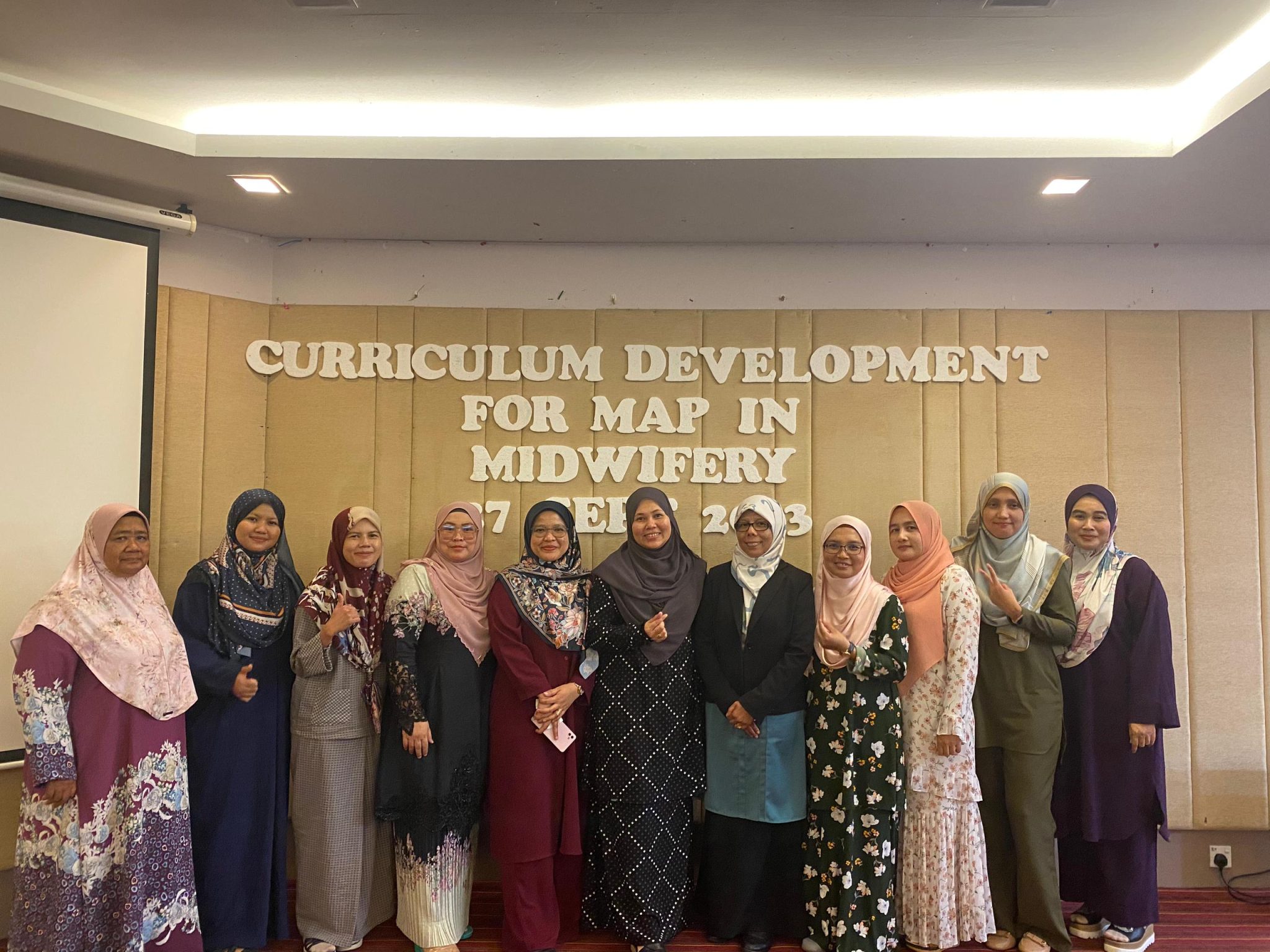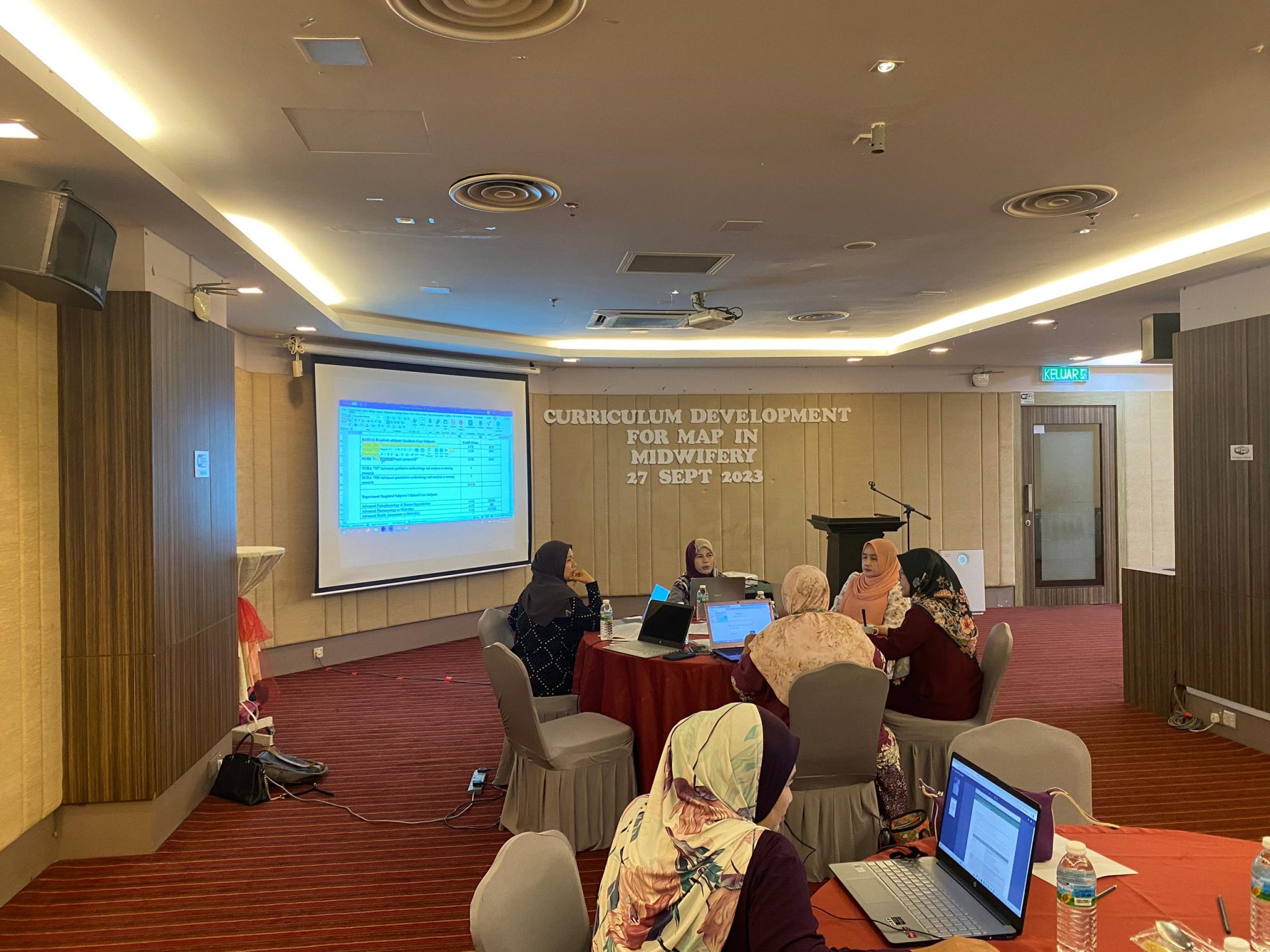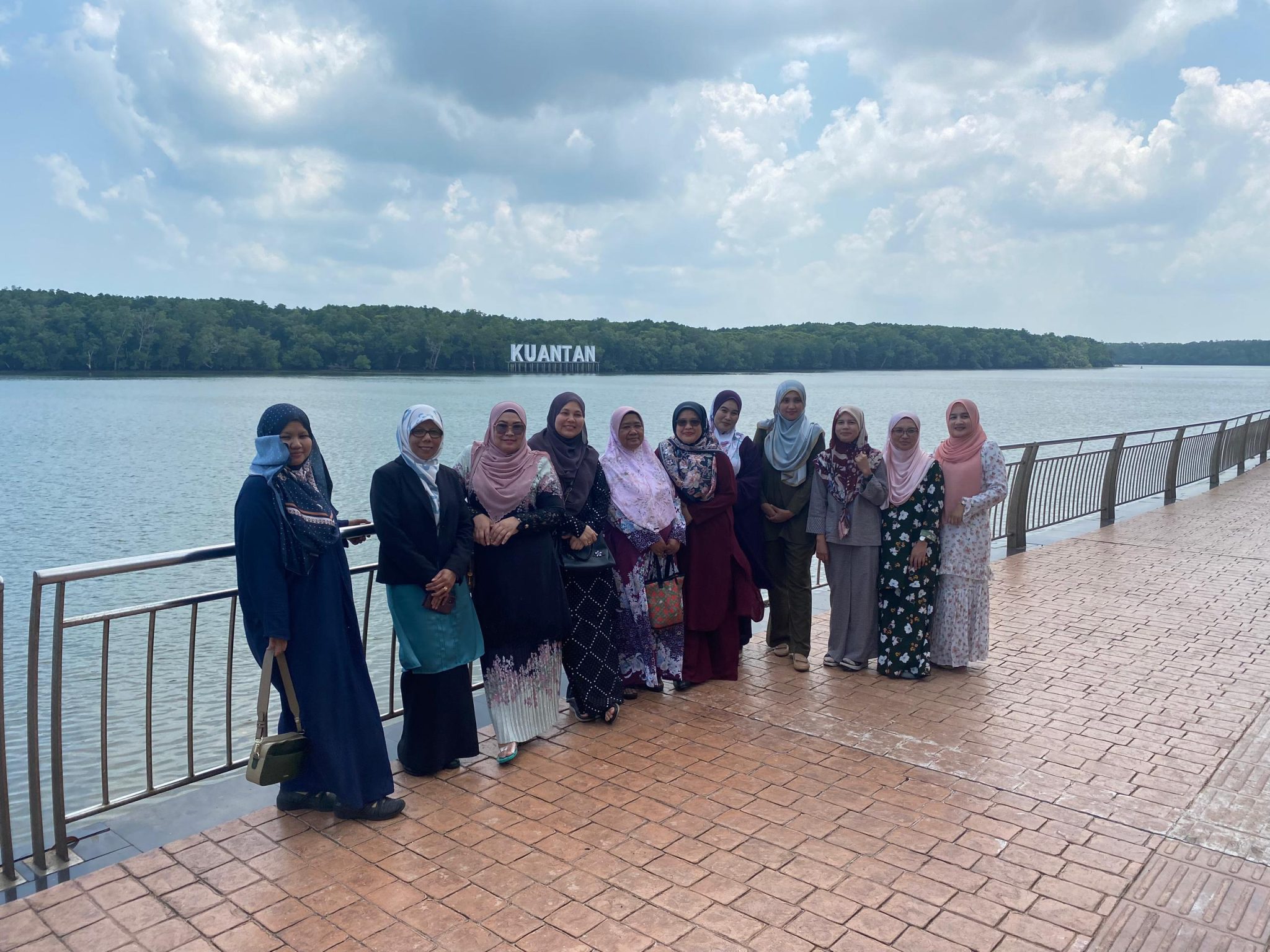Date: September 27, 2023
by Dr. Siti Hazariah Abdul Hamid
Location: Hotel Mega View, Kuantan.
SCN department members crafting a Comprehensive Curriculum for Master of Advanced Practice in Midwifery. Midwifery is a profoundly impactful field within the healthcare industry, providing essential care and support to women and their families during pregnancy, childbirth, and the postpartum period. The role of a midwife has evolved significantly over the years, and as a result, the education and training required to become a midwife have also transformed.
Midwifery, once an occupation deeply rooted in tradition and oral knowledge, has undergone a remarkable transformation. Modern midwives are highly educated healthcare professionals who work collaboratively with obstetricians and other specialists to ensure the safety and well-being of expectant mothers and their babies. This shift in the role of midwives necessitates an advanced curriculum that equips them with a diverse set of skills, knowledge, and competencies.
Key Components of a MAP in Midwifery are:
- Core Midwifery Knowledge and Skills: A Master of Advanced Practice in Midwifery curriculum include a strong foundation in core midwifery knowledge and skills. This encompasses understanding the physiology of pregnancy and childbirth, hands-on clinical skills, and evidence-based practice in prenatal care, labor and delivery, and postpartum care.
- Advanced Clinical Skills: As advanced practice midwives, students must be prepared to handle complex clinical situations. Curricula incorporate advanced clinical skills such as managing high-risk pregnancies, performing specialized procedures, and providing comprehensive well-woman care.
- Interdisciplinary Collaboration: Collaboration with other healthcare professionals, including obstetricians, nurses, and neonatal specialists, is a key aspect of modern midwifery. Curricula emphasize the importance of effective communication and teamwork in delivering the best possible care to expectant mothers.
- Cultural Competency and Inclusivity: Recognizing and addressing the unique needs of a diverse patient population is essential in midwifery. Curricula should include cultural competency training to ensure that students can provide care that is sensitive to the diverse backgrounds of their patients.
- Leadership and Advocacy: As advanced practice midwives, graduates must also be prepared for leadership roles within healthcare organizations and advocacy for midwifery in the broader healthcare system. Leadership and advocacy training should be integral to the curriculum.
- Research and Evidence-Based Practice: Staying current with the latest research and evidence-based practices is critical in any healthcare field. Midwifery curricula should include research methodology and critical appraisal skills to enable graduates to contribute to the advancement of their field.
- Professional Development: Continuous professional development is a hallmark of any advanced practice profession. The curriculum should include opportunities for ongoing learning and skill development to keep midwives up-to-date with the latest advancements in healthcare.
Responding to Changing Healthcare Needs
A robust Master of Advanced Practice in Midwifery curriculum must be flexible and responsive to changing healthcare needs. This adaptability is crucial because healthcare is a dynamic field with evolving challenges and opportunities. Curricula should be regularly reviewed and updated to integrate emerging best practices and technologies.
Conclusion
The development of a comprehensive curriculum for a Master of Advanced Practice in Midwifery program is a multifaceted and dynamic process. A well-designed curriculum should encompass core midwifery knowledge, advanced clinical skills, interdisciplinary collaboration, cultural competency, leadership, advocacy, research, and professional development. Moreover, it should be adaptable and responsive to changing healthcare needs. By providing students with a robust and forward-thinking education, we can prepare the next generation of advanced practice midwives to meet the evolving needs of expectant mothers and their families, ensuring the best possible care throughout pregnancy, childbirth, and the postpartum period.


